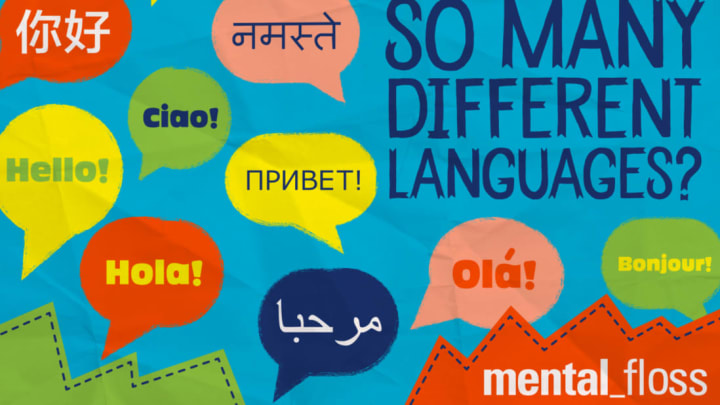WHY? is our attempt to answer all the questions every little kid asks. Do you have a question? Send it to why@mentalfloss.com.
Did you know there are about 7000 languages in the world today? That’s a lot! Scientists who study languages are called linguists (LIN-gwists). They don’t know exactly when people began inventing words instead of just using a few sounds or body movements, like many animals do. But they know that human migration (my-GRAY-shun), moving from one place to another, played a big role in making so many languages.
Over thousands of years, humans split off into groups that migrated in different directions. As that happened, one language could turn into many. People had to learn to live in very different places: hot deserts, freezing mountains, steamy rainforests. Each place had different kinds of weather, plants, and animals. Having new words to talk about these new things helped people adapt (change) to their new home and survive (live). After a while, new words and ways of living helped lead to totally new languages.
Once a group of people settled in a place, they were often isolated (apart) from other groups. When people didn’t mix much, their words didn’t either. On the other hand, people did sometimes learn and borrow some words from other groups. For example, people speaking different languages might meet to trade, or were forced to leave home and move closer to another group because of war. Over long periods of time, then, both things—isolation and a little mixing—helped create so many languages.
Languages are related, just like family members are. Learn more in this video from TED-Ed. Watch with a grownup who can help you with some of the bigger words!
